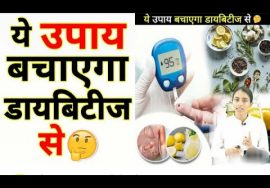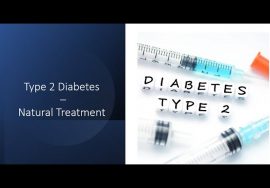Is Ketosis Safe? Ketoacidosis vs Ketosis: Low Carb Science: Thomas DeLauer
Subscribe for 3x Videos Per Week!
Is Ketosis Safe? Ketoacidosis vs Ketosis: Low Carb Science: Thomas DeLauer
Ketosis is a state in which the body starts burning fat for energy due to lack of new glucose in the diet.
Carbohydrates provide the body with glucose. The pancreas secretes a hormone called insulin that works with the glucose in the bloodstream to provide energy to the body's organs and cells.
When the glucose supply is exhausted, it begins to break down stored fat to meet its energy needs for normal functioning. The accumulation of ketone molecules in the blood makes it extremely acidic. This irritates the kidneys, which flush out ketones through urine.
Ketosis gets its name from the ketones that are produced in the process of breaking down the fat. In a healthy person, the amount of fat that is burned and ketones that are produced is tightly controlled, causing no harmful side effects.
Ketosis, or nutritional/dietary ketosis, is commonly seen in those participating in low-carb diets (as well as prolonged periods of fasting or starvation) and can be quite helpful in losing weight, as fat is burned in the entire process to gain energy
As ketosis is usually a diet-induced process, it isn’t harmful
However, ketoacidosis, which is seen in people suffering from a lack of insulin, is a life-threatening condition. (1)
Ketoacidosis
Ketoacidosis, also known as diabetic ketoacidosis (DKA), is a life-threatening condition in which your body doesn’t make enough insulin. This can cause you to have dangerously high levels of ketones and blood sugar.
Think of DKA as a dangerous state of ketosis
It is a condition afflicting mainly type 1 diabetes patients who suffer from hyperglycemia as a result of lack of insulin.
Inadequate insulin levels result in the failure of the body to utilize blood glucose as a fuel source; rather, to compensate the decreased energy levels, the body starts breaking down fat, resulting in ketones.
Without insulin to control the amount of ketones produced during this process, an excessive amount is produced
When excessive amount ketones build up in the blood, it seriously alters the normal chemistry of the blood and interferes with the functions of multiple organs.
They make the blood acidic, which causes vomiting and abdominal pain. If the acid level of the blood becomes extreme, ketoacidosis can cause falling blood pressure, coma and death.
Ketoacidosis is always accompanied by dehydration, which is caused by high levels of glucose in the blood. Glucose builds up in the blood if there is not enough insulin to move glucose into your cells (1,2)
The Difference
Diabetic Ketoacidosis (DKA) is a very dangerous state where an individual with uncontrolled diabetes is effectively starving due to lack of insulin. Insulin brings glucose into our cells and without it the body switches to ketones.
Our brain can function off either glucose or fat and ketones. Ketones are a breakdown of fat and amino acids that can travel through the blood to various tissues to be utilized for fuel.
You see, in normal individuals, or those with well-controlled diabetes, insulin acts to cancel the feedback loop and slow and stop the overproduction of ketones. Without this feedback loop, dangerous levels of ketones build up, acidifying the body.
This would register on a Ketone Meter at levels of 20 mmol/l. The levels can build up to a state that is highly toxic.
If someone is in this state, they are usually accompanied with excessive thirst and urination, hyperglycemia, pain, nausea, and deep, labored, gasping breathing. These individuals need to seek medical treatment (2)
Who is at risk?
DKA can occur very quickly and symptoms of DKA can develop over a period of a few hours, and treatment results in rapid recovery
People with type 1 diabetes are at risk of diabetic ketoacidosis. If you have type 1 diabetes, ketoacidosis can occur because you have stopped taking your insulin injections or because your insulin dose is too low.
It can be triggered by an infection or severe physical stress, such as an injury or surgery, because your body can need more insulin than usual during these stresses. Ketoacidosis rarely occurs in people with type 2 diabetes.
In most people who have type 2 diabetes, blood insulin levels usually do not get low enough to signal the liver to make ketones. (3)
References
1) Understanding Ketosis vs Ketoacidosis. (n.d.). Retrieved from
2) Why DKA & Nutritional Ketosis Are Not The Same. (n.d.). Retrieved from
3) Diabetic Ketoacidosis Guide: Causes, Symptoms and Treatment Options. (n.d.). Retrieved from












Thanks for adding in the portion about type one diabetics. I’d love to see a video that does specifically address ketogenic diet for type one diabetics. if you have more knowledge on that one would be great thanks
Great video! The ketogenic diet can Never cause ketoacidosis, it just doesn’t work that way…
Why are there “PHDs” out there saying that keto diet is dangerous, And fasting is dangerous? They also say there are cases of ketoacidosis due to low carb diets. I’m meeting many health nuts out there that are terrified of fasting and the keto diet. I figure if Jesus did 40 day’s we can do a week here and there. You are the first to say “never” that I’ve heard.
Hey Dr Berry nice to see him here.
I really tried sticking with the the keto diet, but I just felt awful and it’s also really tough to follow. I then tried the *Agoge diet* and it was life changing, I highly recommend it to everyone.
This channel is absolut gold.
So Thomas, let me ask you: how often are you in ketosis and what is the nutrition route otherwise?
do you do ketosis for a weekend a month or something? or for 4 weeks straight a couple of times a year? and is the span in between always low carb?
i love the details and information on the subjects but sometimes miss a bit the answer on the question of what the plan and routine is in the long run. havent watched through all your videos yet though. thanks
Haha ask me all about ketoacidosis, since I’ve been in ketoacidosis many times. However it’s really only dangerous in a type 1 diabetic.
@SlitYourJuggular then its just keto flu. Keep hydrated, eat, and rest man.
@9thNinja can I ask your exact symptoms when you had it?
@SlitYourJuggular ok, cool. Just keep an eye on it.
@9thNinja the stomach pain is alleviated when I eventually can pass a stool but it’s more sickly feeling like nauseous. As if I’ve ate something that was off. I’ve never vommited no
@9thNinja I mean, maybe I exaggerated. When I drink a lot of water it seems to subside slightly. But I force it down or have a high protein snack like half a chicken breast and it seems to go away slightly.
Mike, 1st I just want to say I love watching your channel. 2nd, I have a friend who was told he needed to lose weight for fear of becoming diabetic. Do you think Ketosis would be a good fit for him at this state?
Can you do some easy/cheap recipes? Most of my meals lately consist of eggs, hamburger, and butter cuz I’m broke most of the time, but would like some keto and wallet friendly fulfilling foods to try
Very tasty and cheap receipe: cabbage, mince, butter, onion, tbsp. Tomato pasta, heavy cream. Boil cabbage until soft (cutted in small Peace’s) in small water, ad cooked mince with onion, tomato pasta, heavy cream , butter, salt, pepper. Steam bit together until ready. Bon appetit.
Tacos in bigger romaine lettuce leaves. Bulletproof coffee. Meatloaf. Chicken wrapped in bacon?
Keto bread grilled cheese riced coliflower cricriciferous veggies stuffed cabbage. Stuffed peppers also one I’ve come up with minute steak peppers&onions mushrooms can be served on coliriced or with cheese fried eggs salsa and sour cream
How bout home made chedder broccoli soup also cabbage soup with beef broth you can eat anything you want in Keto foods just remember to keep the carbs out
dlayne21 great idea! Will do soon!
Thank YOU! I have been a diabetic (type 1, because it’s on both sides of the family, and well… Genetics lottery sucks) Since I was a skinny and sporty 9 year old. It’s always been well regulated… I’m now 33 years old, and I’m not as sporty or skinny as I once was, and since water fasting intrigues me as a means to lose weight and get back to where I really want to be… Every time I hear “ketones” my diabetic alarm goes off. Thank you for explaining what I didn’t even know after having diabetes for over 20 years… Smarter every day, and getting me 1 step closer to doing it… Water fasting diet that is. I have a serious question though, so sorry for the very long comment here.
I’m sure that during the fast I can borderline cut my insulin intake, but physical activity such as working out etc. will drop my blood sugar and then I’d have to be forced to counteract that with glucose or fruit juice, and I’m pretty sure that’ll make the whole fasting process pointless… Is there an alternative? To get a low blood sugar back up, but without breaking the fasting process for getting to ketosis?
your videos are so informative and helpful -really keeps you on track! thank you!!
Thank you Thomas. Very informative and well explained. I love your videos on fasting and keto.
Arman Teker thank you!
Your information is GREAT… keep up the good work…
Gordon Means thank you!
Thank you. Very informative. Started fasting 3 weeks ago, because of your videos and already have lost kilo and a half ,from 65.5 to 64 (I am am sort of an ectomorph) and the best part it is very sustainable and I can’t imagine my life without it 🙂
Also pleaaase make a video about posture and how good or bad posture can influence us. I think posture is very unrepresented aspect of our life and might encourage more people to exercise.
I like your videos, pretty informative. I would be interested to find out one of your full day diets, what is it that you eat? How long you’ve been on ketogenic diet?
I really like your videos an really appreciate the time you take to research and make the information available to us. 🙂
Because of you I started a keto diet! Thank you far all the great information. My question is given that I know I don’t consume enough greens would one of those green micronutrient supplement powders be beneficial?
Hey Tom, great video! I’ve been doing keto for 8 days, but I workout 2 to 3 days a week and I was thinking of doing the cyclical ketogenic diet maybe in about a month. Do you have any advice you can share?
Thanks Thomas for another great video and info. Any references or suggestions on a Keto Vegan diet? I am interested in going into ketosis but I have a mostly plant-based diet. Let me know your thoughts. thx.
Great video – great information. Thanks Thomas
Hi, thank you for this video, it’s really, really helpful! 🙂 I’m doing my research on keto diet and I’d like to ask, is it safe to go on keto if I have Hashimoto’s disease (it’s a condition in which your immune system attacks your thyroid) and I’m on hormones, I’ve gained 66 lbs for the last 3 years, (I was 116 lbs before that) and also, I have high glucose levels and I’m on a pill for that as well? I’ve red a lot and still haven’t got an answer. 🙂
Thank you in advance, and thank you again for this video, I’ll definitely check out your channel for more! 🙂
Hey Thomas! Love your channel, great information as always! I’m starting to lean towards ketogenic diet – but haven’t started it yet (have some doubts, thinking about it).
I have quite a serious request for you: Could you test your sex hormone and other hormones that influence their levels and create a video about that, showing your results?
That would be Testosterone, Free Testosterone, SHBG, DHT, E2, Cortisol, DHEA, GH – I think these are the most important.
I am really interested in what the profile looks like in men that do ketogenic diet and currently doing kind of “scientific experiment – you would be a significant part of it.
Because there are some studies claiming that Ketogenic diet decreases testosterone, increases cortisol and E2, increases SHBG, thus lowering Free T and DHT.
Waiting for your answer!